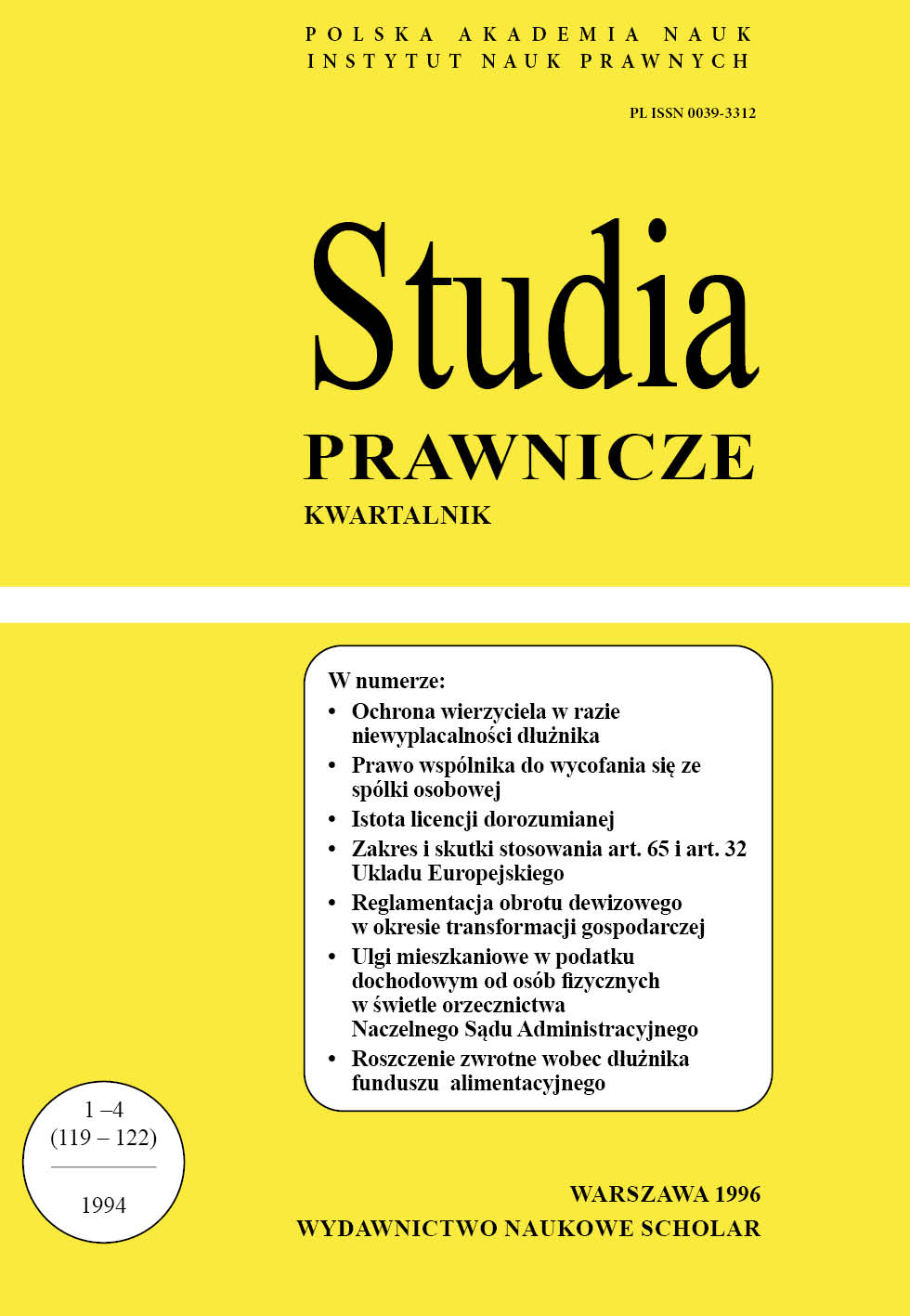Zakres i skutki stosowania art. 65 i art. 32 Układu Europejskiego. (Próba oceny obowiązującej regulacji prawnej w dziedzinie produkcji i zbytu napojów alkoholowych i wyrobów tytoniowych)
Scope and effects of Articles 65 and 32 of the Europe Agreement (An attempted assessment of the current legal regulations in the field of production, import and sale of alcoholic beverages and tobacco products)
Author(s): Ryszard Skubisz, Marcin TrzebiatowskiSubject(s): Law, Constitution, Jurisprudence
Published by: Instytut Nauk Prawnych PAN
Keywords: Treaty of Rome; alcohol; tobacco cultivation; trade turnover; Europe Agreement
Summary/Abstract: The decision of the Association Council to issue, on the basis of Article 65 of the Europe Agreement, a decision on the application of rules resulting from the Treaty establishing the European Economic Community to public companies or enterprises granted special or exclusive rights is secondary to the obligation to follow the stipulations of said Treaty. The failure of the Association Council to enact the relevant legal act within the two-year period from the entry of the Europe Agreement into force (the transition period) does not relieve Poland of its obligation under Article 65 of the EU, as the standards of any association agreement are considered an integral part of the law of European Communities.The reference of obligation dictated by Article 65 of the UE to Article 90 of the Treaty establishing the European Economic Community (TEEC), regulating the situation of state businesses (currently Article 86) and orders and prohibitions specified therein is excessively narrow and definitely inadequate, as the subject matter of the regulation of Article 65 of the EU is related to a range of other legal issues. It should be acknowledged, however, that the scope of this issues is determined mainly by Article 90 of the TEEC.The regulation of Article 65 of the EU expands the scope of application of Article 85 of the TEEC [currently Article 81 of the Treaty establishing the European Community, imposing on the entrepreneurs the prohibition of practices violating competition] also on the relationships between the Member States and Poland. Thus, Article 65 of the EU imposed the obligations set out therein not only on Poland, but also on the Member States. The provision of Article 65 of the EU expands the subjective scope of Article 86 [currently Article 82 of the Treaty establishing the European Community, prohibiting the abuse of dominating position] also on the relationships between the Member States and Poland.The provision of Article 65 of the EU, indirectly, through Article 90, expanded the regulation included in Articles 91-94 TEEC [currently Articles 86-87 of the Treaty establishing the European Community, related to the permissibility of state aid] on Poland. Literally the same applies to the Member States. However, in this respect, their obligation already results directly from the quoted provision of Article 90 TEEC.From the point of view of Poland as an associated state, the narrow understanding of obligation resulting from Article 65 of the EU should be favoured, together with exclusion (in view of this provision) of Article 37 TEEC [currently Article 31 of the Treaty establishing the European Community, related to regulation of state monopolies by the Member States]. Article 32 of the EU acquires an independent meaning, including all consequences it provides for, including temporal consequences and this Article should be referred to Article 37 TEEC.The provision of Article 32 of the Europe Agreement also imposes obligations on the Member States of the European Union as set out therein, to align state monopolies according to principles analogous to those arising from Article 31 of the Treaty establishing the European Community, in order to ensure non-discriminatory treatment of Polish products.
Journal: Studia Prawnicze
- Issue Year: 1994
- Issue No: 1-4
- Page Range: 99-127
- Page Count: 29
- Language: Polish

